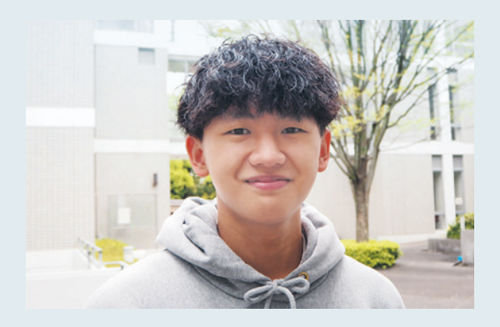
About the co-op program (formerly internship*)
At our university, the "Co-op Program" is offered as a regular curricular subject mainly in the summer and winter semesters, and it is possible to earn credits.
By gaining actual work experience at a variety of training sites, from general companies to government offices, NPOs, and educational institutions, students not only learn about the workings of companies and society, but also discover and solve problems at their training sites. This is an exploration-type program that gives students an opportunity to think about the path they want to take in the future, such as taking on challenges.
*Due to the revision of the "Thoughts on Promoting Internships" as agreed by three ministries including the Ministry of Education, Culture, Sports, Science and Technology, the name of "Internship Subjects" will be changed to "Co-op Program" from 3.

1.Characteristics of our university's "co-op program"
At our university, the co-op program not only provides work experience, but also aims to help students discover and solve problems faced by companies based on the knowledge they have learned at university, thereby improving students' abilities. I'm thinking of connecting.
- In addition to providing work experience, we also implement programs that include elements of "problem solving" and "problem exploration."
- During the training period, monitoring is conducted via the web, and faculty members visit the site to respond to students' questions on a daily basis.
- Evaluation using our university's own rubric (evaluation sheet) by the person in charge at the training site and feedback to students
- Deepen your understanding of the industry and business through pre- and post-learning, and provide guidance on creating self-promotion for job hunting.

2.Acquisition of credits
At our university, we emphasize experiences outside of the classroom, and some faculties have required elective subjects such as global studies and community studies (co-op programs or service learning). The co-op program, which is attended by over 200 students each year, allows students to earn credits by registering for the course within the designated period.
Classes consist of pre-learning (knowledge, goal setting, etiquette courses, etc.), practical training at the host company, post-learning (reflection), and a results presentation report session. If the training schedule is 5 days or more, 1 credit will be awarded, 10 days or more will be 2 credits, and 15 days or more will be 3 credits.

3. Schedule
| summer internship | winter internship | |
| Entry briefing session | 4 | Mid April |
| Submission of entry sheet | 4 month to 5 month | November to early December |
| Recipient matching, schedule adjustment | 5 month to 6 month | 12 |
| Pre-learning | 6 month to 7 month | End of January to early February |
| Training period | 8 month to 9 month | 2 month to 3 month |
| Post-learning | 10 | The end of March |
| Debriefing session, information exchange meeting with host organization | 11 | - |

4.About the training location
Government offices / Local governments (prefectures, towns and villages) / University City Kobe industry-government-academia platform / Management associations / Companies and organizations introduced by universities (Kobe Toyopet, Hotel Vischio Amagasaki, Banshu Shinkin Bank, etc.) / Public and private educational institutions / For international students (University Consortium Hyogo Kobe, Osaka Foreign Employment Service Center, JICA Kansai), etc.

5.Voices from participants
Sho Sakai (Faculty of Contemporary Sociology* Tourism Department 3rd year)

They participated in an i-program at the airport, watched a video about runway safety, and actually checked the safety of the runway. We were also able to enter the aircraft and tour the cabin and cockpit, as well as talk with the flight attendant and the captain. I believe that by deepening my understanding of the aviation industry, I am getting closer to my dream of working at an airport.
*Currently: Faculty of International Communication, Department of Tourism
Aki Une (3rd year, Department of Business Administration)

Participated in Nomura Securities' program. I had the best experience in honing my skills, working in a group to come up with a project that would make asset management in Japan more familiar, and giving a presentation. In the future, I would like to inherit the company my father runs, and I think this will help me manage the company with a global perspective.
[Inquiries and contact information]
Kansai University of International Studies Career Support Office (Career Support Division)
Kobe Yamate Campus TEL. 078-341-3056
Amagasaki Campus TEL. 06-6496-4116
Miki Campus TEL. 0794-84-3508
On Saturdays, Sundays, public holidays or university holidays, please e-mail:shushoku@kuins.ac.jp Please contact